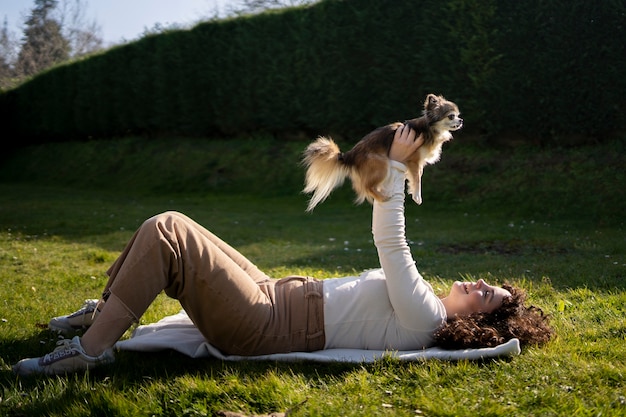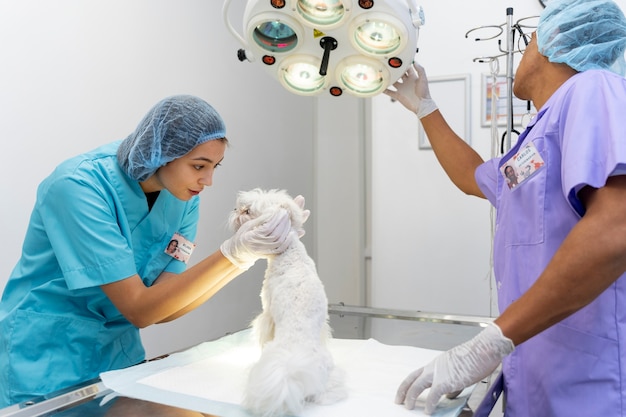Beat the Houston Heat: Summer Pet Safety Tips for Memorial Drive Families


Beat the Houston Heat: Summer Pet Safety Tips for Memorial Drive Families
Houston summers bring not only beautiful sunny days for family fun but also intense heat and humidity that can challenge even the healthiest pets. As temperatures climb in August, caring pet owners in the Memorial Drive area and surrounding communities often worry: How can I keep my dog or cat cool, comfortable, and safe? At PetRight, our team of veterinarians understands that your pets are cherished family members, and we are dedicated to helping you navigate the unique risks of Houston summer pet care.
This guide will walk you through essential summer pet safety tips, including how to recognize signs of heat stress, why Houston’s climate puts pets at risk, and the practical steps you can take to prevent heat-related emergencies. We will also explain when it’s time to seek professional veterinary help and how our wellness care and prevention services at 14015 Memorial Drive, Houston, TX 77079 can help your pet thrive all summer long. If you are searching for a "vet near me" who puts your pet’s comfort and safety first, you are in the right place.
Recognizing the Signs: How Summer Heat Affects Houston Pets
Pets in Houston are especially vulnerable to heat-related problems, given our area’s high humidity and soaring temperatures. Recognizing early signs of overheating can make all the difference for your pet’s health. Symptoms of heat stress in dogs and cats include excessive panting, drooling, rapid heartbeat, glazed eyes, weakness, vomiting, or collapse. Some pets may become restless, seek shade, or lie flat on cool surfaces. When humidity is high, even moderate activity can overwhelm your pet’s ability to cool down.
Particular breeds, such as those with short noses like Bulldogs and Persians, as well as older pets or those with chronic health conditions, are at greater risk. If you notice your pet showing any unusual signs after time outdoors, it is important to act quickly to bring them into a cooler environment and offer fresh water. Remember that cats may be less obvious in their symptoms, often hiding when uncomfortable. Observing subtle changes in behavior, such as lethargy or loss of appetite, is just as critical for cats as it is for dogs.
Why Houston’s Climate Demands Extra Care in Summer
Houston is known for its hot and humid summers, and the climate poses unique risks for pets. Unlike humans, dogs and cats cannot efficiently sweat to regulate their body temperature; instead, they primarily rely on panting and limited sweating through their paw pads. When the air is humid, panting becomes less effective, and pets can quickly develop heat exhaustion or even life-threatening heatstroke.
Factors contributing to heat-related illness in pets include high daytime temperatures, lack of shade, insufficient hydration, and being left in confined spaces such as cars or poorly ventilated rooms. Walking your dog on hot pavement can also cause painful burns on their paw pads, as asphalt and concrete can reach temperatures much higher than the surrounding air. Owners in Houston and the surrounding communities should remain vigilant, as even brief exposure to extreme conditions can have serious consequences.
Safe Summer Pet Care in Houston: Professional Guidance and Support
Professional veterinary care plays an essential role in summer pet safety. Our team at PetRight encourages annual wellness exams to assess your pet’s overall health and detect any underlying conditions that may increase their risk during hot weather. For example, pets with heart or respiratory problems may require special precautions. We also recommend keeping up with heartworm testing and treatment, as mosquitoes thrive in Houston summers and can transmit this dangerous parasite.
If your pet shows signs of heatstroke—such as heavy panting, vomiting, confusion, or collapse—immediate veterinary attention is critical. Treatment for heatstroke generally involves rapid cooling, intravenous fluids, and monitoring for complications such as organ damage. The sooner your pet receives professional care, the better their chances for a full recovery. For less severe concerns, such as mild overheating or paw pad burns, our veterinarians can provide specific recommendations to promote healing and prevent further injury.
Prevention is always preferable to emergency care. Our wellness care and prevention services are designed to help you keep your pet healthy and comfortable all year long, with tailored advice for Houston summer pet care and ongoing support from our experienced veterinary professionals.
Practical Prevention: Keeping Your Pet Cool and Comfortable in Houston
There are many steps you can take at home to protect your pet from the Houston heat. Provide unlimited access to fresh, cool water both indoors and outdoors, as dehydration can set in quickly. Schedule walks and playtime during the early morning or late evening hours, when temperatures are less extreme. Avoid hot surfaces—if the pavement is too hot for your hand, it is too hot for your pet’s paws. Creating shaded areas in your yard and using cooling mats or fans indoors can offer additional relief.
Never leave your pet in a parked car, even for a few minutes, as temperatures inside can soar to deadly levels in a short time. Grooming can also help; removing excess fur and keeping your pet’s coat tidy may improve heat dissipation, but avoid shaving breeds with protective double coats, as this can actually increase their risk of sunburn and overheating.
In addition to these practical steps, regular wellness care and prevention appointments with our veterinary team can help you stay ahead of potential heat-related issues. Our veterinarians can recommend specific products, such as sunblock for pets with light-colored fur or booties for dogs who enjoy walks, to further protect your pet.
When to Seek Veterinary Care: Acting Fast for Your Pet’s Safety
Knowing when to seek professional veterinary help is crucial during the summer months. If your pet displays any signs of heatstroke, such as heavy or labored breathing, vomiting, diarrhea, confusion, staggering, or collapse, move them to a cool area immediately and call your veterinarian for guidance. Attempt to cool your pet with lukewarm water and fans, but avoid using ice-cold water, as this can worsen the situation.
For less urgent concerns—such as mild lethargy, refusal to eat, or minor paw pad burns—schedule an appointment with our veterinary team to have your pet evaluated. If you are unsure about your pet’s symptoms or need advice on summer pet safety tips, our team at PetRight is always ready to assist with compassionate, expert care.
Our commitment to your pet’s health extends to offering emergency veterinary care when unexpected issues arise. Prompt intervention can make a significant difference in outcomes, so never hesitate to reach out when you are concerned about your pet’s wellbeing in the Houston heat.
Conclusion: Protecting Your Pet All Summer Long with PetRight
Surviving and thriving in the Houston summer requires active, informed pet care. By recognizing the signs of heat stress, understanding the unique challenges of our climate, and taking practical steps to keep your pet hydrated and cool, you can ensure a safe and happy summer for your furry family members. Regular visits for wellness care and prevention at PetRight provide additional peace of mind, helping you stay ahead of potential problems before they arise.
If you are searching for the best "vet near me" for Houston summer pet care, we invite you to schedule an appointment with our veterinary team today. Our compassionate professionals at 14015 Memorial Drive, Houston, TX 77079 are dedicated to supporting you and your pet with personalized advice and preventive programs tailored to our climate. Call us at (281) 497-6222 to book your visit or to discuss any concerns you may have about summer pet safety tips. At PetRight, your pet’s wellbeing is always our top priority.
For additional resources on keeping pets safe during Houston summers, visit the American Veterinary Medical Association’s pet heat safety page or the Houston SPCA. Remember, when it comes to pet health, prevention and early action are the keys to a safe and joyful summer together.



















